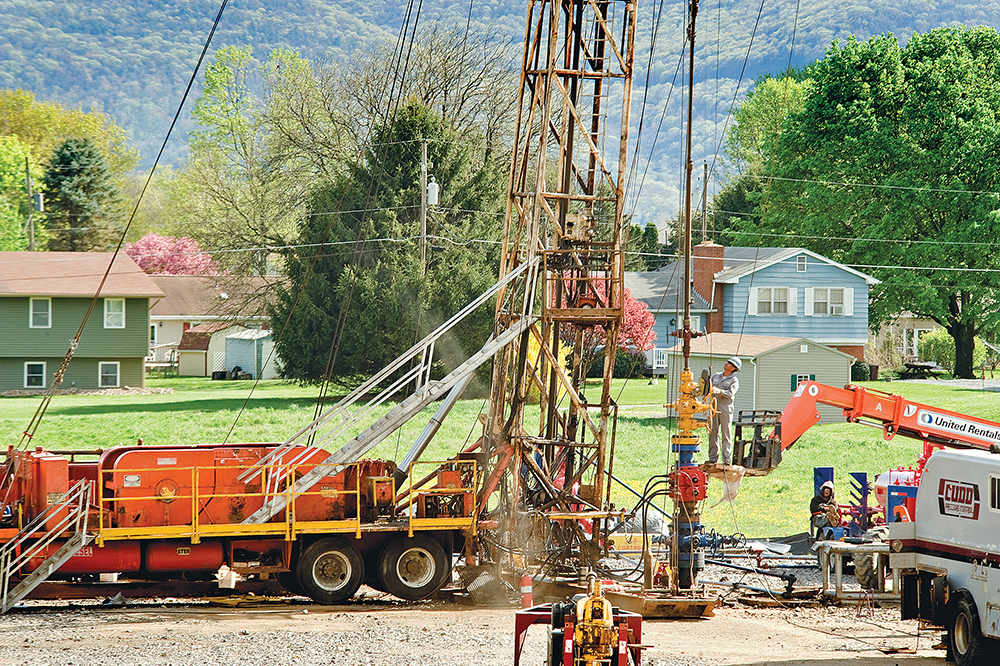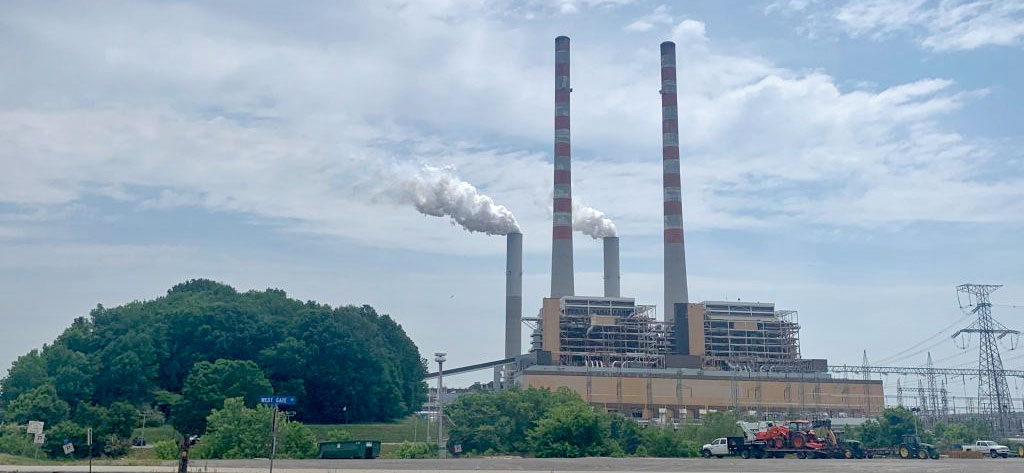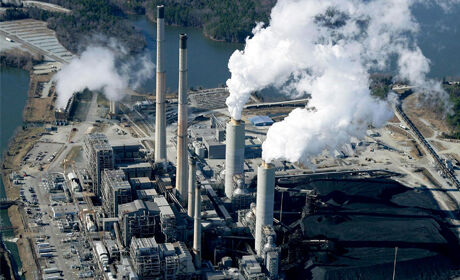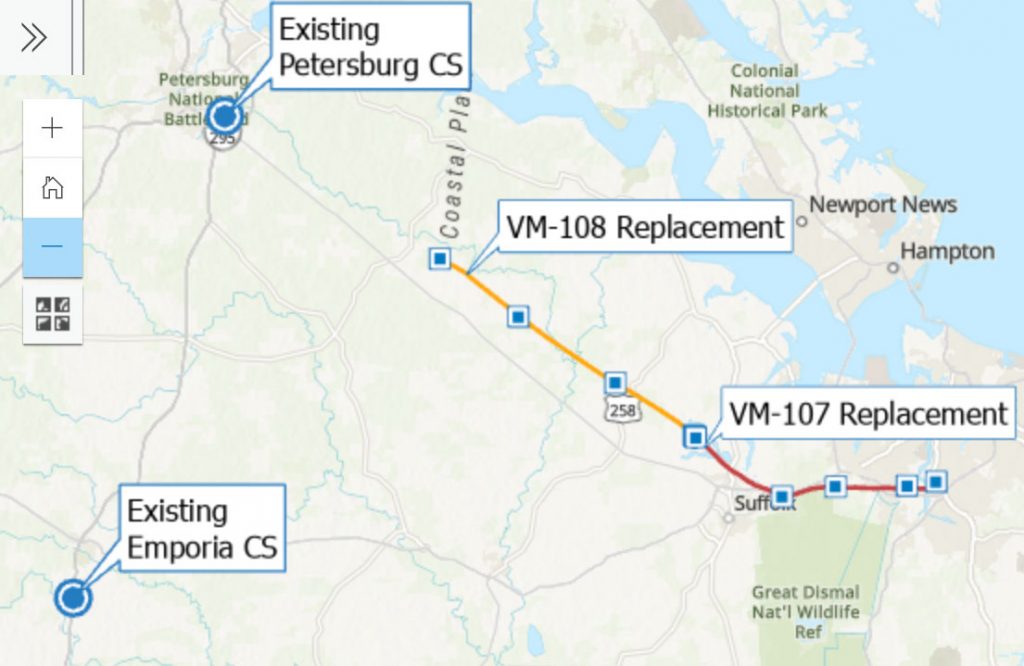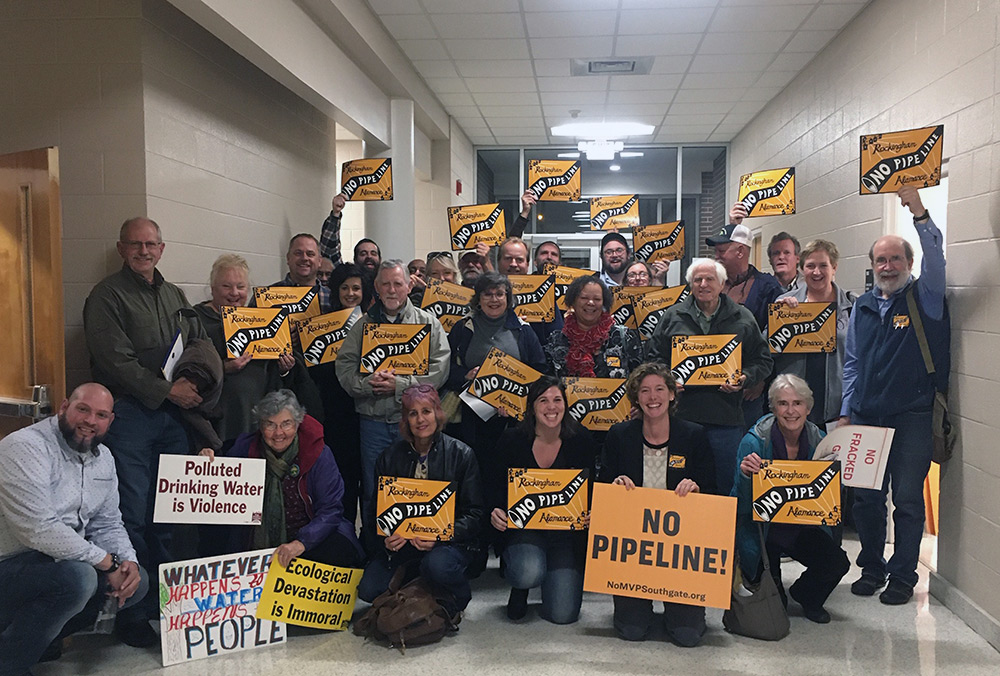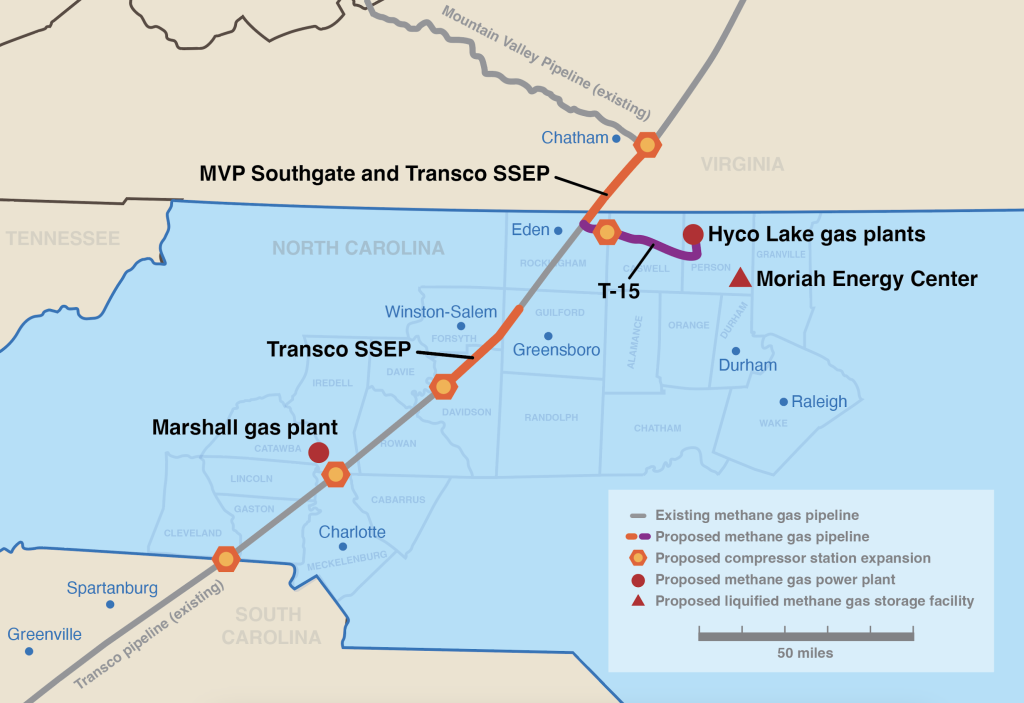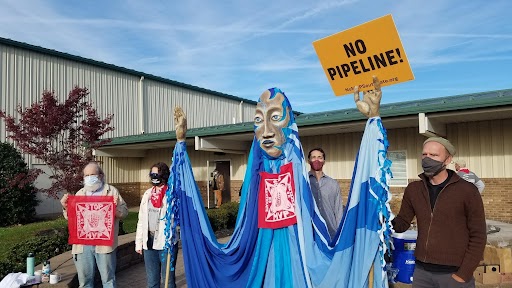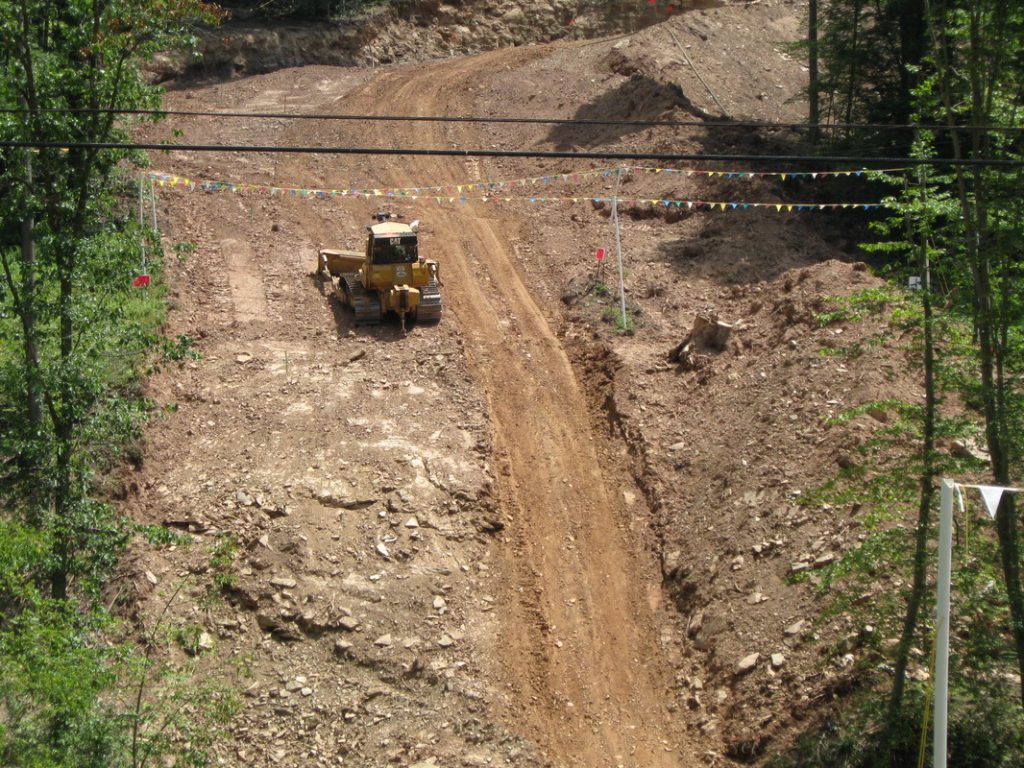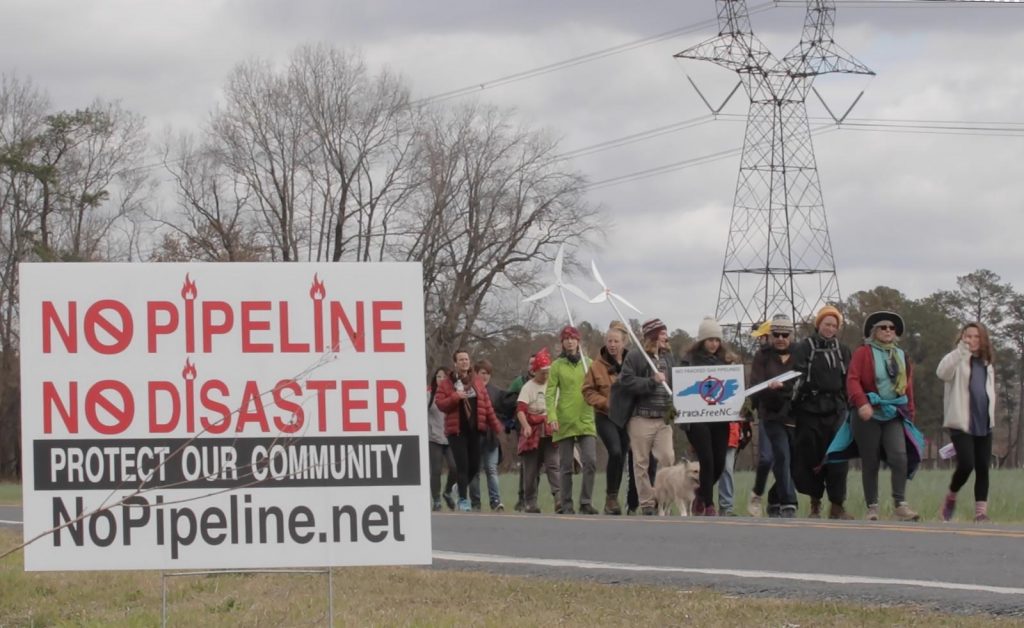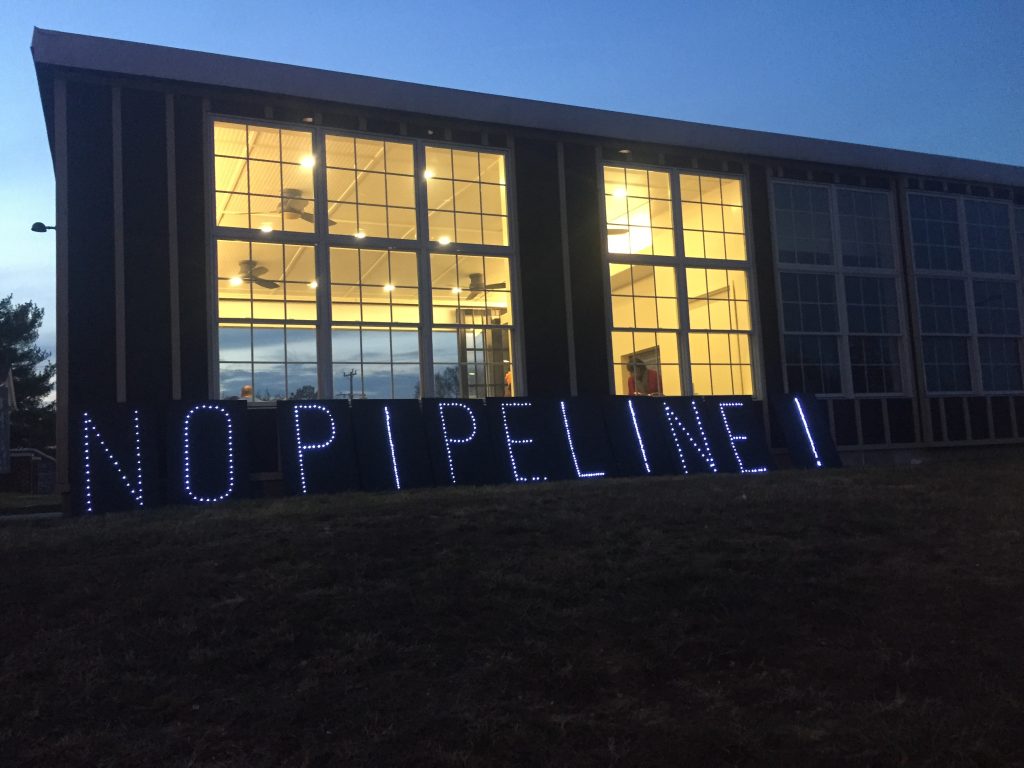Stop Pipelines & Fracked Gas

Photo By Sierra Shamer / Fractracker
Two decades ago, so-called natural gas exploded on the American energy market, pushed by the industry as a supposedly clean “bridge” fuel to transition the economy from dirty coal to renewable sources of electricity generation like solar and wind.
But this gas is far from clean. From the time that it is extracted using a destructive drilling method called fracking, its transport through pipelines, train cars and trucks, to the power plants where it is burned, the dire environmental and human costs of this fossil fuel are now abundantly clear. In particular, this polluting infrastructure is often sited in communities of color, lower-income areas and other environmental justice communities.
Studies show that investments in renewable energy and energy efficiency are on par with, or sometimes more affordable than, building new gas infrastructure. Many states are enacting policies to tap into the rising solar and wind sector. Yet the fossil fuel industry is rushing to build methane gas pipelines and power plants to squeeze as much profit as possible out of the waning fuel, putting most of the financial risk on customers.
Appalachian Voices is tackling the spread of fracked gas head-on by legally challenging fossil fuel proposals and pushing back against the antiquated policies and rubber-stamping agencies that govern the development of gas infrastructure. We are also partnering with communities in the fight against new fossil fuel infrastructure, providing resources and training to bolster local opposition. And we are pressuring decision-makers to force them to consider the harm to communities threatened by polluting energy development.
And the tide is starting to turn. In July 2020, Duke Energy and Dominion Energy canceled the 600-mile Atlantic Coast Pipeline. The massive fossil fuel project was riddled with problems, starting with the fundamental fact it was not needed to meet energy demand. Standing beside the many communities and organizations that made this historic victory possible, we’re taking this momentum and applying it toward the fight against other destructive, climate-harming projects that threaten community safety, our clean air and water, and that would raise electricity costs for residents.

Latest News
Retired Miners Face Possible Loss of Benefits
Retired coal miners face possible loss of benefits, a Duke University study reveals coal ash byproducts in area fish, The U.S. State Department approves the Keystone XL pipeline and other shorts from The Energy Report.
Gathering Voices Against the Pipelines
Add your voice to the call to block more fracked gas pipelines from criss-crossing our region!
Federal review of Atlantic Coast Pipeline fails people and the environment
Contacts: Lewis Freeman, Allegheny-Blue Ridge Alliance, 703-298-8107, lewfreeman@gmail.com…
Atlantic Coast Pipeline proposal raises questions that beg for answers
West Virginia resident and guest blogger April Keating outlines some of the key concerns with the Atlantic Coast Pipeline, including safety risk, runoff and pollution, increased fracking, costs to ratepayers and more.
Students speak out against the Atlantic Coast Pipeline: Why collaborative resistance matters
Guest bloggers Divest Appalachian members Cassidy Quillen and Olivia Nelson take a look at how the Atlantic Coast Pipeline touts an ideology of sustainability while profiting off of industries driving climate change.
Unnecessary and unwanted: Opposition to the Atlantic Coast Pipeline grows
The public has taken every opportunity to tell FERC to reject the Atlantic Coast Pipeline. There’s still time to add your voice to the choir of people across the country urging FERC to reject the unnecessary and unwanted project.

